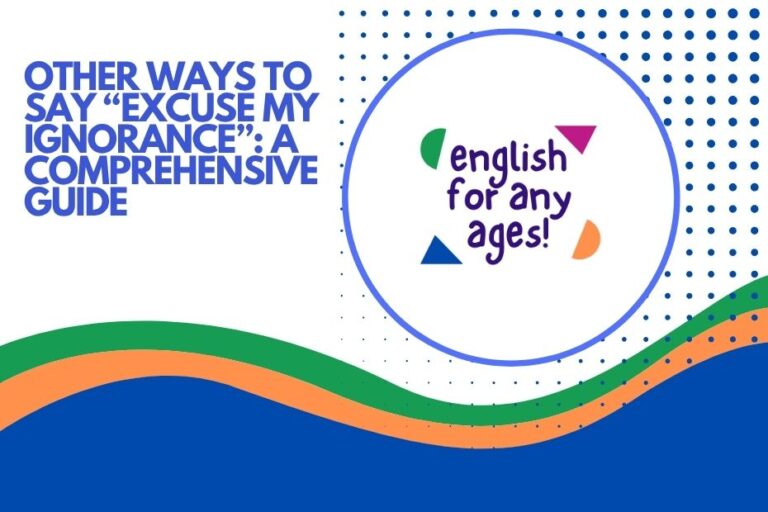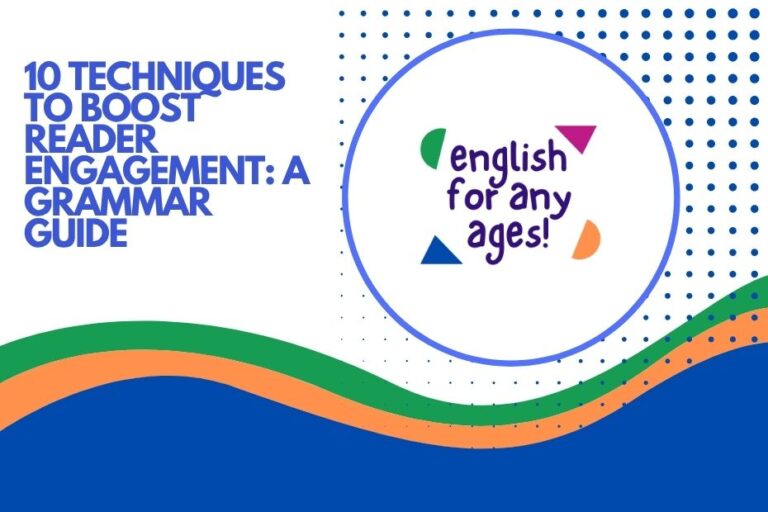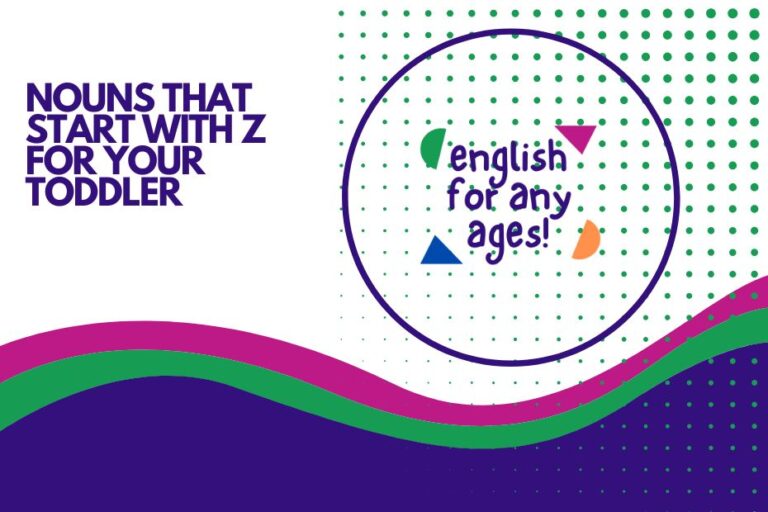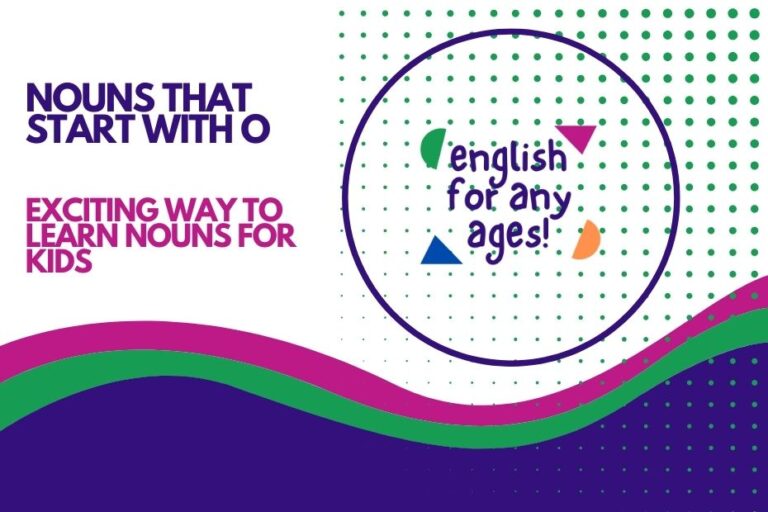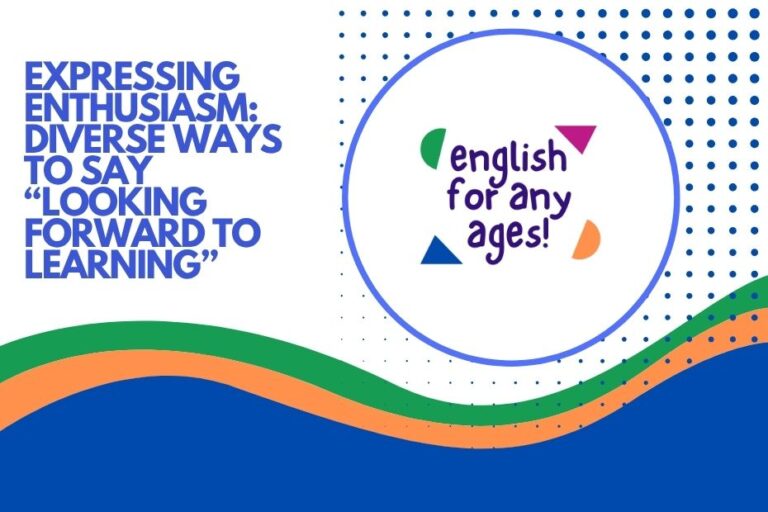200+ Nouns that Start with D – Fun Word Games for Kids
Nouns that start with D can be fascinating and diverse, ranging from common objects to abstract concepts. These nouns play an essential role in our daily communication and enrich our vocabulary.
Whether you are a student, teacher, or language enthusiast, exploring nouns starting with “D” can help you expand your knowledge. Here are some examples that will get you started:
- Dog
- Dream
- Door
- Dance
- Doctor
This article will cover a variety of nouns starting with “D,” including their definitions and unique characteristics.
Examples of Nouns that Start with D
You’ll learn about different types of nouns like proper nouns, concrete nouns, and abstract nouns starting with “D” in this section. Additionally, we will provide examples of how these nouns are used in sentences, making it easier for you to grasp their meanings and applications.
Proper Noun
A specific name of a person, place, or thing. Unique Feature: Always capitalized (e.g., “John”, “New York”).
1. David
“David” is a proper noun because it refers to a specific person.
2. Dubai
“Dubai” is a proper noun because it refers to a specific city.
3. Denmark
“Denmark” is a proper noun because it refers to a specific country.
4. Disney
“Disney” is a proper noun because it refers to a specific company.
5. Delhi
“Delhi” is a proper noun because it refers to a specific capital city.
6. Diana
“Diana” is a proper noun because it refers to a specific person’s name.
7. Delta
“Delta” is a proper noun because it refers to a specific airline.
8. Dublin
“Dublin” is a proper noun because it refers to a specific city.
9. Dior
“Dior” is a proper noun because it refers to a specific fashion brand.
10. Drake
“Drake” is a proper noun because it refers to a specific artist.
11. Dartmouth
“Dartmouth” is a proper noun because it refers to a specific university.
12. Dunkin’
“Dunkin'” is a proper noun because it refers to a specific coffee brand.
13. Darwin
“Darwin” is a proper noun because it refers to a specific scientist.
14. Dallas
“Dallas” is a proper noun because it refers to a specific city.
15. Ducati
“Ducati” is a proper noun because it refers to a specific motorcycle brand.
Common Noun
Refers to general items or things, not specific. Unique Feature: Not capitalized unless at the beginning of a sentence.
1. Dog
A “dog” is a common noun because it names an animal.
2. Door
A “door” is a common noun because it names an object.
3. Desk
A “desk” is a common noun because it names furniture.
4. Drum
A “drum” is a common noun because it names a musical instrument.
5. Dress
A “dress” is a common noun because it names clothing.
6. Dish
A “dish” is a common noun because it names a household item.
7. Doll
A “doll” is a common noun because it names a toy.
8. Duck
A “duck” is a common noun because it names a bird.
9. Doctor
A “doctor” is a common noun because it names a profession.
10. Daisy
A “daisy” is a common noun because it names a flower.
11. Dolphin
A “dolphin” is a common noun because it names a sea creature.
12. Driver
A “driver” is a common noun because it names a person.
13. Donkey
A “donkey” is a common noun because it names an animal.
14. Day
A “day” is a common noun because it names a time unit.
15. Dance
A “dance” is a common noun because it names an activity.
Abstract Noun
Names something that cannot be physically touched. Unique Feature: Represents ideas or emotions (e.g., “happiness”, “freedom”).
1. Danger
“Danger” is an abstract noun because it refers to a feeling or condition, not something physical.
2. Desire
“Desire” is an abstract noun because it describes an emotion or wish.
3. Dedication
“Dedication” is an abstract noun because it represents a concept of commitment.
4. Determination
“Determination” is an abstract noun as it signifies a mental state of resolve.
5. Delight
“Delight” is an abstract noun because it refers to a feeling of happiness.
6. Despair
“Despair” is an abstract noun as it conveys an emotional state of hopelessness.
7. Devotion
“Devotion” is an abstract noun because it describes love and loyalty.
8. Dignity
“Dignity” is an abstract noun as it signifies a state of respect and self-worth.
9. Disappointment
“Disappointment” is an abstract noun because it reflects a feeling of sadness.
10. Discipline
“Discipline” is an abstract noun as it denotes a concept of self-control.
11. Discovery
“Discovery” is an abstract noun because it describes the process of finding something.
12. Doubt
“Doubt” is an abstract noun as it signifies uncertainty.
13. Dream
“Dream” is an abstract noun because it represents ideas or aspirations.
14. Duty
“Duty” is an abstract noun because it refers to a sense of responsibility.
15. Determination
“Determination” is an abstract noun as it signifies a mental state of resolve.
Concrete Noun
Names something tangible that can be touched or seen. Unique Feature: Can be perceived with the senses (e.g., “table”, “dog”).
1. Dog
A “dog” is a concrete noun because you can see and touch it.
2. Door
A “door” is a concrete noun because it is a physical object.
3. Drum
A “drum” is a concrete noun because you can hear and play it.
4. Desk
A “desk” is a concrete noun because it is a physical item.
5. Duck
A “duck” is a concrete noun because it is a living creature.
6. Doll
A “doll” is a concrete noun because it is a toy you can hold.
7. Dish
A “dish” is a concrete noun because you can use it to eat.
8. Dress
A “dress” is a concrete noun because it is an object you wear.
9. Donkey
A “donkey” is a concrete noun because it is an animal you can see.
10. Diamond
A “diamond” is a concrete noun because it is a shiny stone.
11. Dock
A “dock” is a concrete noun because it is a structure by water.
12. Dough
“Dough” is a concrete noun because it is a substance you can feel.
13. Deer
A “deer” is a concrete noun because it is a living animal.
14. Dolphin
A “dolphin” is a concrete noun because it is an aquatic animal.
15. Dinner
“Dinner” is a concrete noun because it is food you can eat.
Collective Noun
Refers to a group or collection of things. Unique Feature: Represents multiple individuals as one (e.g., “team”, “family”).
1. Deck
A “deck” is a collective noun for cards. It refers to a group of cards considered as a single unit.
2. Dozen
A “dozen” is a collective noun for 12 items, like eggs, counted as one group.
3. Den
A “den” is a collective noun for a group of wild animals, such as lions, living together.
4. Droves
“Droves” is a collective noun for large groups of animals or people moving together.
5. Delegation
A “delegation” refers to a group of representatives acting as a single unit.
6. Dynasty
A “dynasty” is a collective noun for a series of rulers from the same family.
7. Drum
A “drum” is a collective noun for a group of fish, such as drumfish, considered together.
8. Drive
“Drive” is a collective noun for cattle or animals being herded together.
9. Docket
A “docket” refers to a group of legal cases or documents organized as one set.
10. Drift
A “drift” is a collective noun for a group of snow or animals moving together.
11. Duo
A “duo” is a collective noun for two people performing together as one unit.
12. Division
A “division” refers to a group of soldiers or a military unit acting as one.
13. Draft
“Draft” is a collective noun for a group of written works or designs.
14. Detachment
A “detachment” refers to a group of soldiers sent on a mission together.
15. Department
A “department” is a collective noun for a group of people working in one section of an organization.
Countable Noun
Names something that can be counted. Unique Feature: Has singular and plural forms (e.g., “apple”, “cats”).
1. Dog
“Dog” is countable because you can count how many dogs there are.
2. Desk
“Desk” is countable because you can count desks in a room.
3. Doll
“Doll” is countable because you can count the dolls you have.
4. Door
“Door” is countable because you can count how many doors are in a house.
5. Duck
“Duck” is countable because you can count ducks on a farm.
6. Drum
“Drum” is countable because you can count how many drums there are.
7. Dinosaur
“Dinosaur” is countable because you can count different types of dinosaurs.
8. Diamond
“Diamond” is countable because you can count diamonds in a collection.
9. Daisy
“Daisy” is countable because you can count how many daisies are in a garden.
10. Deer
“Deer” is countable because you can count how many deer you see in the forest.
11. Donut
“Donut” is countable because you can count how many donuts there are in a box.
12. Duckling
“Duckling” is countable because you can count ducklings in a pond.
13. Drumstick
“Drumstick” is countable because you can count how many drumsticks are on a chicken.
14. Dime
“Dime” is countable because you can count how many dimes you have in your wallet.
15. Day
“Day” is countable because you can count the days of the week.
Uncountable Noun
Refers to something that cannot be counted. Unique Feature: Doesn’t have a plural form (e.g., “water”, “sand”).
1. Dirt
“Dirt” is uncountable because it refers to a substance.
2. Dust
“Dust” is uncountable as it refers to fine particles.
3. Dairy
“Dairy” is uncountable because it refers to a category of food.
4. Damage
“Damage” is uncountable because it refers to harm, not individual things.
5. Dehydration
“Dehydration” is uncountable because it’s a state of lack of water.
6. Drama
“Drama” is uncountable as it refers to a genre, not individual plays.
7. Debt
“Debt” is uncountable because it’s a state of owing money.
8. Distance
“Distance” is uncountable because it’s a measure, not an individual thing.
9. Discovery
“Discovery” is uncountable because it refers to the act of finding, not an object.
10. Dignity
“Dignity” is uncountable as it refers to a quality of respect.
11. Delight
“Delight” is uncountable as it refers to a feeling, not an object.
12. Data
“Data” is uncountable as it refers to information, not individual pieces.
13. Drama
“Drama” is uncountable as it refers to plays or situations, not specific items.
14. Doubt
“Doubt” is uncountable as it refers to uncertainty or confusion.
15. Discipline
“Discipline” is uncountable because it refers to a field of study or self-control.
Compound Noun
A noun made of two or more words. Unique Feature: Can be written as one word, hyphenated, or separate (e.g., “toothbrush”, “mother-in-law”).
1. Dishwasher
“Dishwasher” is a compound noun because it combines “dish” and “washer” to describe a machine that washes dishes.
2. Doorbell
“Doorbell” is a compound noun because it combines “door” and “bell” to describe a bell used for calling at a door.
3. Dragonfly
“Dragonfly” is a compound noun because it combines “dragon” and “fly” to describe an insect with wings.
4. Driveway
“Driveway” is a compound noun because it combines “drive” and “way” to describe a path leading to a house.
5. Deskchair
“Deskchair” is a compound noun because it combines “desk” and “chair” to describe a chair used at a desk.
6. Daydream
“Daydream” is a compound noun because it combines “day” and “dream” to describe a dream that happens during the day.
7. Dartboard
“Dartboard” is a compound noun because it combines “dart” and “board” to describe a board used for playing darts.
8. Doghouse
“Doghouse” is a compound noun because it combines “dog” and “house” to describe a small shelter for a dog.
9. Drumstick
“Drumstick” is a compound noun because it combines “drum” and “stick” to describe a stick used to play a drum.
10. Duckling
“Duckling” is a compound noun because it combines “duck” and “ling” to describe a young duck.
11. Doorway
“Doorway” is a compound noun because it combines “door” and “way” to describe an opening for a door.
12. Daylight
“Daylight” is a compound noun because it combines “day” and “light” to describe natural light during the day.
13. Dustbin
“Dustbin” is a compound noun because it combines “dust” and “bin” to describe a container for waste.
14. Doughnut
“Doughnut” is a compound noun because it combines “dough” and “nut” to describe a type of fried dough.
15. Drumroll
“Drumroll” is a compound noun because it combines “drum” and “roll” to describe a type of sound made with a drum.
Singular and Plural Nouns
Singular refers to one; plural refers to more than one. Unique Feature: Formed by adding “s” or “es” in English (e.g., “cat”, “cats”).
1. Dog / Dogs
“Dog” is singular and “Dogs” is plural because it represents one or more dogs.
2. Duck / Ducks
“Duck” is singular and “Ducks” is plural because it represents one or more ducks.
3. Dress / Dresses
“Dress” is singular and “Dresses” is plural because it represents one or more dresses.
4. Door / Doors
“Door” is singular and “Doors” is plural because it represents one or more doors.
5. Dice / Dice
“Dice” is plural and remains “Dice” for both singular and plural forms in certain contexts.
6. Day / Days
“Day” is singular and “Days” is plural because it represents one or more days.
7. Diamond / Diamonds
“Diamond” is singular and “Diamonds” is plural because it represents one or more diamonds.
8. Doctor / Doctors
“Doctor” is singular and “Doctors” is plural because it represents one or more doctors.
9. Dish / Dishes
“Dish” is singular and “Dishes” is plural because it represents one or more dishes.
10. Dinosaur / Dinosaurs
“Dinosaur” is singular and “Dinosaurs” is plural because it represents one or more dinosaurs.
11. Donut / Donuts
“Donut” is singular and “Donuts” is plural because it represents one or more donuts.
12. Drum / Drums
“Drum” is singular and “Drums” is plural because it represents one or more drums.
13. Drawer / Drawers
“Drawer” is singular and “Drawers” is plural because it represents one or more drawers.
14. Duckling / Ducklings
“Duckling” is singular and “Ducklings” is plural because it represents one or more ducklings.
15. Deer / Deer
“Deer” is the same in singular and plural form because it refers to one or more deer.
Possessive Noun
Shows ownership or possession. Unique Feature: Typically formed by adding an apostrophe and “s” (e.g., “John’s book”).
1. Dog’s
“Dog’s” shows ownership of something by a dog.
2. Daisy’s
“Daisy’s” shows ownership of something by Daisy.
3. Dad’s
“Dad’s” shows ownership of something by Dad.
4. Duck’s
“Duck’s” shows ownership of something by a duck.
5. David’s
“David’s” shows ownership of something by David.
6. Door’s
“Door’s” shows ownership of something by the door.
7. Doctor’s
“Doctor’s” shows ownership of something by the doctor.
8. Dancer’s
“Dancer’s” shows ownership of something by the dancer.
9. Dolphin’s
“Dolphin’s” shows ownership of something by a dolphin.
10. Daisy’s
“Daisy’s” shows ownership of something by Daisy.
11. Digger’s
“Digger’s” shows ownership of something by the digger.
12. Desert’s
“Desert’s” shows ownership of something by the desert.
13. Driver’s
“Driver’s” shows ownership of something by the driver.
14. Dinosaur’s
“Dinosaur’s” shows ownership of something by the dinosaur.
15. Doll’s
“Doll’s” shows ownership of something by the doll.
Appositive Noun
A noun or phrase that renames or explains another noun. Unique Feature: Usually set off by commas (e.g., “My brother, Tim, is here”).
1. Dog
“Dog” is an appositive noun because it renames a specific animal.
2. Dolphin
“Dolphin” is an appositive noun because it renames a specific marine animal.
3. Door
“Door” is an appositive noun because it renames a specific object.
4. Dinosaur
“Dinosaur” is an appositive noun because it renames a specific extinct animal.
5. Dress
“Dress” is an appositive noun because it renames a specific clothing item.
6. Drum
“Drum” is an appositive noun because it renames a specific musical instrument.
7. Duck
“Duck” is an appositive noun because it renames a specific bird.
8. Desk
“Desk” is an appositive noun because it renames a specific piece of furniture.
9. Date
“Date” is an appositive noun because it renames a specific fruit.
10. Dollar
“Dollar” is an appositive noun because it renames a specific unit of currency.
11. Daffodil
“Daffodil” is an appositive noun because it renames a specific type of flower.
12. Dragonfly
“Dragonfly” is an appositive noun because it renames a specific insect.
13. Dentist
“Dentist” is an appositive noun because it renames a specific profession.
14. Diary
“Diary” is an appositive noun because it renames a specific book.
15. Dessert
“Dessert” is an appositive noun because it renames a specific type of food.
Attributive Noun
A noun that modifies another noun. Unique Feature: Describes a characteristic (e.g., “toothpaste”, “snowball”).
1. Desire
“Desire” is an attribute noun because it describes a feeling or characteristic.
2. Danger
“Danger” is an attribute noun because it refers to a state or condition.
3. Difficulty
“Difficulty” is an attribute noun because it defines the level of ease or challenge.
4. Diligence
“Diligence” is an attribute noun because it describes the quality of being careful and hardworking.
5. Darkness
“Darkness” is an attribute noun because it refers to the state of being dark.
6. Delight
“Delight” is an attribute noun because it describes a feeling of great pleasure.
7. Danger
“Danger” is an attribute noun because it refers to a condition that can cause harm.
8. Duty
“Duty” is an attribute noun because it represents an obligation or responsibility.
9. Drama
“Drama” is an attribute noun because it refers to a situation with intense emotions.
10. Discipline
“Discipline” is an attribute noun because it describes the ability to control one’s actions.
11. Devotion
“Devotion” is an attribute noun because it refers to strong dedication or loyalty.
12. Distinction
“Distinction” is an attribute noun because it refers to a quality that sets someone or something apart.
13. Despair
“Despair” is an attribute noun because it represents a state of hopelessness.
14. Dream
“Dream” is an attribute noun because it refers to an aspiration or vision.
15. Doubt
“Doubt” is an attribute noun because it describes the feeling of uncertainty.
Generic Noun
Refers to a class or group of things. Unique Feature: Used for general categories (e.g., “dog”, “car”).
1. Dog
“Dog” is a generic noun because it refers to a type of animal.
2. Door
“Door” is a generic noun because it refers to an object that opens and closes.
3. Duck
“Duck” is a generic noun because it refers to a type of bird.
4. Desk
“Desk” is a generic noun because it refers to a piece of furniture used for work or study.
5. Doll
“Doll” is a generic noun because it refers to a toy figure of a person.
6. Drum
“Drum” is a generic noun because it refers to a type of musical instrument.
7. Duckling
“Duckling” is a generic noun because it refers to a baby duck.
8. Dough
“Dough” is a generic noun because it refers to a mixture used to make bread and pastries.
9. Dandelion
“Dandelion” is a generic noun because it refers to a type of flower.
10. Diamond
“Diamond” is a generic noun because it refers to a precious gemstone.
11. Deer
“Deer” is a generic noun because it refers to a type of animal.
12. Dust
“Dust” is a generic noun because it refers to tiny particles of matter.
13. Danger
“Danger” is a generic noun because it refers to the possibility of harm or injury.
14. Dinosaur
“Dinosaur” is a generic noun because it refers to a type of prehistoric animal.
15. Doctor
“Doctor” is a generic noun because it refers to a person who treats illnesses.
Gerunds – That Act as a Noun
A verb ending in “-ing” that functions as a noun. Unique Feature: Can act as the subject or object (e.g., “swimming”, “reading”).
1. Dancing
“Dancing” is a gerund because it refers to an action (verb) acting as a noun.
2. Diving
“Diving” is a gerund because it refers to an action (verb) acting as a noun.
3. Drawing
“Drawing” is a gerund because it refers to an action (verb) acting as a noun.
4. Dreaming
“Dreaming” is a gerund because it refers to an action (verb) acting as a noun.
5. Drinking
“Drinking” is a gerund because it refers to an action (verb) acting as a noun.
6. Debating
“Debating” is a gerund because it refers to an action (verb) acting as a noun.
7. Dying
“Dying” is a gerund because it refers to an action (verb) acting as a noun.
8. Developing
“Developing” is a gerund because it refers to an action (verb) acting as a noun.
9. Dancing
“Dancing” is a gerund because it refers to an action (verb) acting as a noun.
10. Driving
“Driving” is a gerund because it refers to an action (verb) acting as a noun.
11. Discovering
“Discovering” is a gerund because it refers to an action (verb) acting as a noun.
12. Donating
“Donating” is a gerund because it refers to an action (verb) acting as a noun.
13. Driving
“Driving” is a gerund because it refers to an action (verb) acting as a noun.
14. Directing
“Directing” is a gerund because it refers to an action (verb) acting as a noun.
15. Discussing
“Discussing” is a gerund because it refers to an action (verb) acting as a noun.
Verbal Noun
A noun formed from a verb. Unique Feature: Expresses an action or process (e.g., “writing”, “running”).
1. Dancing
“Dancing” is a verbal noun because it is derived from a verb and represents an activity.
2. Driving
“Driving” is a verbal noun because it is the act of controlling a vehicle.
3. Drawing
“Drawing” is a verbal noun because it is the act of creating pictures.
4. Doing
“Doing” is a verbal noun because it represents the act of performing tasks.
5. Dying
“Dying” is a verbal noun because it represents the act of ceasing to live.
6. Diving
“Diving” is a verbal noun because it is the act of jumping into water.
7. Defending
“Defending” is a verbal noun because it refers to protecting something.
8. Deciding
“Deciding” is a verbal noun because it is the act of making choices.
9. Delaying
“Delaying” is a verbal noun because it refers to postponing actions.
10. Damaging
“Damaging” is a verbal noun because it represents the act of harming something.
11. Discovering
“Discovering” is a verbal noun because it is the act of finding something new.
12. Digging
“Digging” is a verbal noun because it represents the action of creating a hole.
13. Dealing
“Dealing” is a verbal noun because it is the act of distributing or handling something.
14. Dropping
“Dropping” is a verbal noun because it refers to the action of letting something fall.
15. Disturbing
“Disturbing” is a verbal noun because it represents the act of upsetting or disrupting something.
Material Noun
Names the material or substance from which things are made. Unique Feature: Cannot be counted (e.g., “wood”, “gold”).
1. Door
“Door” is a material noun because it represents a physical object you can touch.
2. Drum
“Drum” is a material noun because it is a physical item that you can use.
3. Desk
“Desk” is a material noun because it refers to a physical piece of furniture.
4. Diamond
“Diamond” is a material noun because it refers to a tangible, valuable object.
5. Duvet
“Duvet” is a material noun because it refers to a soft, physical item used for warmth.
6. Dish
“Dish” is a material noun because it refers to an object you can touch and use.
7. Dust
“Dust” is a material noun because it refers to small particles of matter.
8. Doll
“Doll” is a material noun because it refers to a physical object that you can play with.
9. Document
“Document” is a material noun because it represents something physical you can hold.
10. Drawing
“Drawing” is a material noun because it refers to a piece of art that you can touch.
11. Cup
“Cup” is a material noun because it is a physical object used to hold liquids.
12. Carpet
“Carpet” is a material noun because it refers to a physical object you can walk on.
13. Clock
“Clock” is a material noun because it refers to a tangible object used to tell time.
14. Chain
“Chain” is a material noun because it is a physical object made of linked metal pieces.
15. Candle
“Candle” is a material noun because it is a physical object made from wax and used for lighting.
Final Words
Nouns that start with “D” offer a wide range of examples that enhance our vocabulary. Understanding their types, meanings, and usage can improve communication skills. By exploring these nouns start with D, you can gain a deeper appreciation for language and expand your ability to express ideas more clearly.

